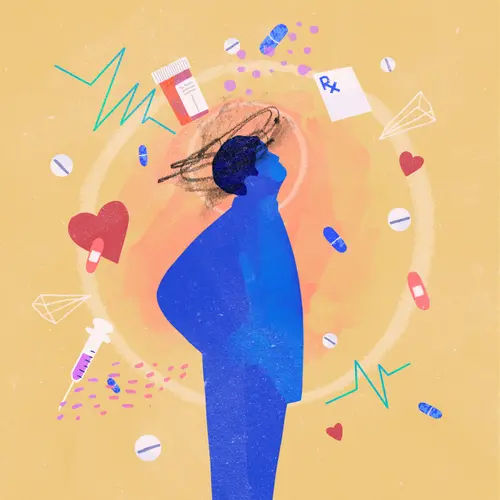Many of us may have a panic attack or two during our lives, and the brief episodes don’t lead to anything else. But for some people, they happen a lot more.
If you think someone is having a panic attack, here’s how you can help them right away:
- Ask them what you can do.
- Reassure them that the attack will probably pass in a few minutes.
- Encourage them to take slow, even breaths.
- Do not minimize their symptoms.
- If they've had a panic attack before, ask what helped them through it.
- If you can’t calm them, take them to see a health care provider right away.
If you’ve had more than one panic attack, it could lead to problems such as depression, agoraphobia (fear of open or public spaces), or substance abuse. If you’ve had multiple attacks, see a doctor. Treatment can do a lot to stop them.
Doctors generally treat panic attacks by setting people up with psychological therapy, medication, or both. Whichever route you and your doctor take, it will need time to work, so try to be patient. When people follow through with their treatment plan, the overwhelming majority find relief and have no permanent problems.
First Step
The racing heartbeat or other discomforts that go with an attack can resemble other illnesses, such as heart disease. So your doctor will probably start by giving you a complete physical exam. That way, they can make sure that the symptoms aren’t coming from a disease you didn’t know about.
If no medical condition like that shows up, your doctor may send you to talk to a psychologist or psychiatrist trained to recognize when someone has been having panic attacks.
Your doctor will combine the counselor’s input with their own observations to diagnose what’s wrong. When someone has attacks repeatedly, doctors call the condition panic disorder.
Counseling
The treatment may begin with “talk therapy.” You’ll sit down with a counselor who can help you understand what panic disorder is and how you can manage it.
As your treatment continues, therapy should help you figure out the situations, thoughts, or feelings that cause your attacks. Once you understand what’s happening, those triggers have less power to cause trouble.
Counseling should also show you that the attacks’ physical effects don’t actually hurt you. With your therapist, you’ll work through your symptoms in a safe, gradual way until they seem less scary. That also can help make the attacks go away.
You’ll also learn relaxation techniques that can help you handle attacks when they do happen. If you can control your breathing, for instance, that may make a panic attack less severe. It might also make the next one less likely. You have to practice these skills regularly in your daily life to get the benefit.
Medication
Your doctor may decide that medication should be part of your therapy, to lessen your attacks’ physical symptoms. It might be part of the first steps, for instance. They might prescribe:
- An antidepressant, which is generally the first choice to prevent future panic attacks.
- An anti-anxiety prescription drug such as a benzodiazepine. For people with substance use disorders, doctors may prescribe other medications.
You and your doctor may have to try more than one medication before finding what works best. Some people do best with more than one type.
What Else Helps
In addition to your treatment, you may also find that these everyday habits make a difference:
- Yoga or deep breathing may relax your body and lower stress.
- Exercise can help calm your mind and offset potential side effects of medication, such as weight gain.
- Stay away from alcoholic drinks, caffeine, smoking, and recreational drugs, which can trigger attacks.
- Get enough sleep, so you don’t feel draggy during the day.
Some research shows that acupuncture, the Chinese technique of inserting thin needles into the body to control the flow of energy, may help.
As for dietary supplements, there’s not enough research showing that they work to reduce panic attacks. One, called inositol, showed some promise in small studies, but it’s too soon to know how well it works. Be sure to check with your doctor before trying any supplements, because they could have side effects or conflict with medication.
Get Support
While you’re working to get better, it helps to have people around you to help. If you join a support group, you could draw strength and encouragement from others who face the same challenges.
Your loved ones can pitch in, too. Health professionals more and more recommend treatment programs that include spouses, partners, or families. For instance, the people around you can help you practice relaxation techniques or other skills.
If you’re a friend or family member of someone who’s dealing with panic attacks, be patient with them. Never scold or judge. Learn their signs of stress, so you can watch for them and be a calming influence. If your loved one does have a panic attack, stay calm and help them get whatever aid they need.
Tap Into Patience
Conquering panic attacks takes time. If you have weekly therapy sessions, you should start to notice results in 10 to 20 weeks. Some studies show improvement after just 12 weeks. After a year, you should feel a huge improvement.
It all depends on sticking with the treatment plan that you and your medical team create. Keep your eyes on the goal.

